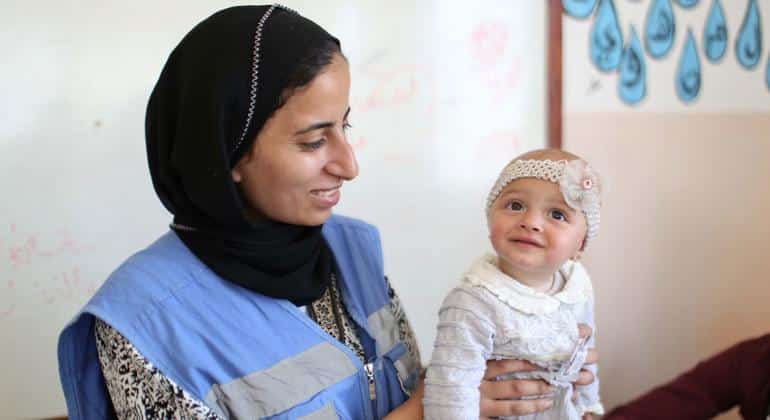Less than a month before a law that could ban the operation of the UN Agency for Palestinian Refugees (UNRWA) in the occupied territories comes into effect, Commissioner General Philippe Lazzarini has reaffirmed the organization’s strong commitment to stay and continue its work in the region. In a message posted on the social network X, Lazzarini emphasized that this ban is part of a broader effort to erase Palestinian history and identity, a measure that was approved by the Israeli Parliament at the end of October last year.
During the conflict that has affected Gaza, UNRWA has played a vital role in providing assistance to approximately two million people. Since the start of the war, their health teams have conducted over 6.7 million medical consultations, resulting in an average of over 1,600 daily consultations. Additionally, 730,000 people have received psychosocial and mental health support, and along with their partners, they have vaccinated 560,000 children against polio. The Agency has also managed to distribute food aid to nearly two million people and has provided shelter to hundreds of thousands of displaced persons in their facilities.
Lazzarini stressed the crucial importance of education, indicating that since the summer, 18,000 children have participated in learning activities, a significantly lower number compared to the over 300,000 who were enrolled before the conflict broke out. “It is essential to return children to an educational environment, away from the rubble,” he added.
In the West Bank, over 50,000 children are enrolled in UNRWA schools, which also provide primary health care to half a million refugees. Lazzarini emphasized that there is no equivalent to UNRWA in UN structures and that it could only be replaced by a Palestinian state addressing the refugee situation. He advocated for a shift in focus towards peace, reiterating that this would require political will and diplomacy.
On the other hand, the International Organization for Migration (IOM) has warned about the devastating impact of rain and cold weather on displaced Palestinians in Gaza. The IOM reported that at least seven infants have died from hypothermia, highlighting the urgency of providing shelter and humanitarian assistance. Intense rains have caused flooding in displacement areas, further complicating the already precarious situation for families, who struggle to repair damaged tents.
Since September of last year, restrictions on humanitarian access have severely limited assistance, allowing only 285,000 people to receive aid. By mid-December, nearly one million people were urgently in need of support for the winter. The IOM has distributed around 180,000 emergency shelter items since mid-November, but severe restrictions continue to hinder access to aid.
The IOM has reiterated its call for a ceasefire to allow for the safe delivery of humanitarian assistance to those in need, urging all parties to respect international humanitarian law and protect civilians. “The population of Gaza deserves security, shelter, and dignity,” concluded the IOM, highlighting their readiness to increase assistance to displaced communities, provided that humanitarian access is guaranteed.
via: MiMub in Spanish











